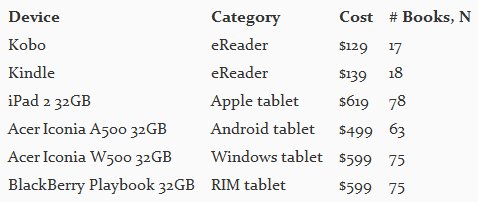Nokia has a problem. The ordinary cellphone market which mere years ago they bestrode like a Colossus has been overshadowed by the smartphone market, and they’re just an ordinary company in that market.
In the memo, Mr. Elop shares his vision of the current state of the mobile landscape, where Apple controls the high-end of the wireless market with its iPhone, where Google’s Android not only is making its mark in the smartphone arena but now conquering the mid-range market with Android and how Nokia is even losing the fight to control the low end of the cellphone market — an arena in which the company has traditionally dominated — as it struggles to compete with China’s MediaTek for market share and mind share in emerging markets.
“The first iPhone shipped in 2007, and we still don’t have a product that is close to their experience,” he writes.
“Android came on the scene just over 2 years ago, and this week they took our leadership position in smartphone volumes. Unbelievable … And the truly perplexing aspect is that we’re not even fighting with the right weapons. We are still too often trying to approach each price range on a device-to-device basis.”
Update: Eric S. Raymond thinks the memo shows that Nokia’s new CEO has the courage to grasp the nettle:
If this memo does nothing else, it proves that Elop is not afraid to look facts in the eye and propose drastic remedies for a near-terminal situation. I cannot recall ever hearing in my lifetime a CEO’s assessment of his own corporation that is so shockingly blunt about the trouble it is in. The degree of candor here is really quite admirable, and does more than any other evidence I’ve seen to suggest Elop has the leadership ability to navigate Nokia out of its slump.
It’s clear from the memo that Elop is preparing his company to change their flagship smartphone OS. You can’t get more obvious than ‘We too, are standing on a “burning platform,” and we must decide how we are going to change our behaviour.’
The available alternatives are Android or WP7. Apple’s iOS is right out because Nokia needs to be able to sell cheap on a huge range of handsets. RIM and WebOS are tied to one company each. MeeGo’s been tried and failed. There are no other realistic contenders.
I think we’re being given some subtle clues that it will be Android.
Update, 12 February: Andrew Orlowski has some post-tragedy analysis of Nokia’s collapse into the arms of WP7:
There are times when you don’t want to intrude on public grief, but Nokia has spent 15 years (or more) trying to avoid this day.
New CEO Stephen Elop would argue otherwise, but giving up control of your platforms means giving up control over your destiny – and Elop has given Nokians not one twig of consolation around which a bit of dignity could be wrapped.
He’s also signalled the end of Nokia as a high R&D spend technology company. “We expect to substantially reduce R&D expenditures”, said Elop bluntly in this morning’s webcast. The new Nokia will be a global brand and a contract manufacturer whose primary customer is itself.
“Disaster” and “stitch-up” are two of the texts I received this morning from Nokians. Finnish press reports 1,000 staff in Tampere walking out. A surprise? Not really. For 15 years Nokia has defined itself, to its partners and customers, as the Not-Microsoft. Now it’s utterly dependent on them. There’s no Plan B.
[. . .]
How does Nokia recreate the product-centric, almost skunkworks development culture of the 1990s, while retaining its global logistical strengths, such as its ability to customise for local markets? How does Nokia prevent Microsoft from stealing its ideas? How does it create services that don’t brass off its biggest customers, the operators? Some of these are very old questions, and the Microsoft tie up does nothing to resolve them — it might even complicate them.
The impact on morale is probably the most immediate thing Elop has to address — it’s a huge blow to Finnish national pride. Elop’s brutal assessment in his “Burning Platforms” intranet post is that Nokia was hopeless at strategy, rubbish at marketing, and couldn’t write software. He all but told Nokians that they should have stayed in the rubber boot business.
What a motivator!




